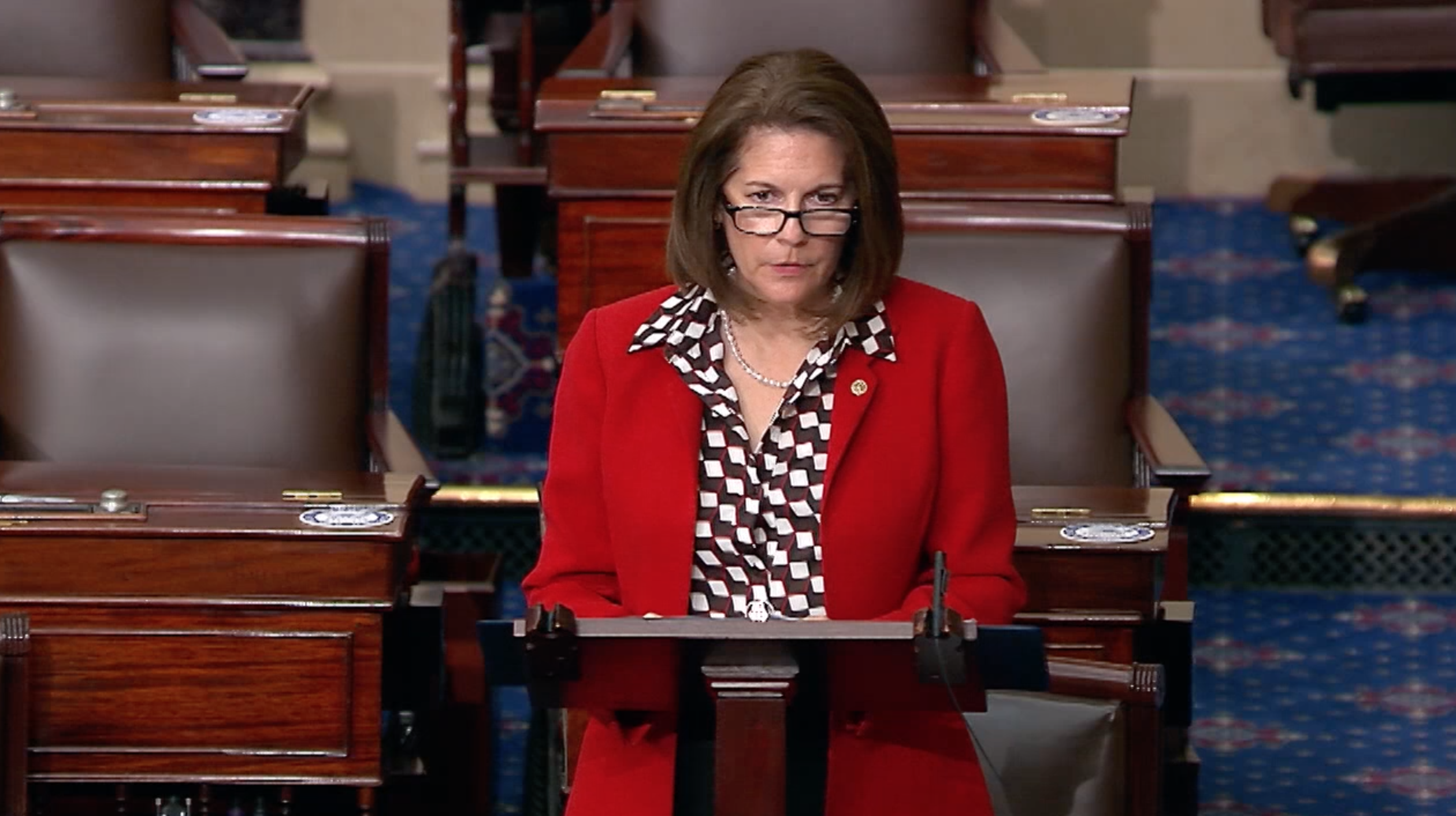
Washington, D.C. – U.S. Senator Catherine Cortez Masto (D-Nev.) spoke today on the Senate floor about the need to support schools in upcoming coronavirus legislation. She also emphasized the importance of funding critical broadband access at a time of social distancing.
Senator Cortez Masto’s remarks are available in VIDEO FORMAT. Below are her remarks as prepared for delivery:
In a couple of weeks, students in Nevada and around the country are going to begin their studies again.
I want for my nieces and nephews, for my friends’ kids, what every parent in America wants: a safe school year that allows schoolchildren to thrive in mind and body.
To make that happen, students and parents need the flexibility to make decisions that are best for their families.
They need school systems that can afford the technology, the equipment, and the resources to keep students and staff safe.
And they need access to the internet and the devices that will support education, as well as allow parents to work from home and supervise kids.
I’ve been working to bridge the digital divide for Nevadans for years now as part of my Innovation State Initative, which helps Nevada develop groundbreaking solutions to 21st century problems.
That’s why last month, I held a statewide conversation about broadband. I heard local officials in rural communities talk about the challenges they faced getting high-quality internet access to their communities. A nine-year-old student told me how she struggled to do school work with only her mother’s cell phone for internet access.
But I also heard optimistic stories, including ones about libraries stepping in to the digital breach through the FCC’s e-rate program, which subsidizes internet access for schools and libraries.
Most of all, we talked about how widespread the issue is in my state. The FCC’s own figures show that half of rural Nevadans—and six percent of people state-wide—can’t even get high-speed, wired internet.
That’s not counting people who can’t afford services or devices, and those who can’t get reliable wireless services. We’re talking hundreds of thousands of people in the Silver State without the ability to stay connected to one another during a time of social distancing.
Students in Nevada need internet access not just to attend class remotely, but to submit homework online. Between 12 and 16 million students across the country can’t complete their homework because they lack access.
It’s not just families with school-aged kids who need better broadband access. Businesses need it too, to reach new customers and offer new services.
Seniors in nursing homes and assisted living facilities need it to talk to family they may not have been able to hug for months on end.
Everyone who has had to fill out online forms at the DMV, file unemployment claims, or answer the 2020 census needs it.
That’s why we must build on the $2 billion the CARES Act included for various broadband technology investments and allocate funds in this next coronavirus package to make access to broadband more affordable in every zip code.
With my colleagues, I’ve introduced the Accessible, Affordable Internet for All Act, to invest over a $100 billion dollars in things like E-rate support, including Wi-Fi on school buses and digital literacy training.
That investment can fund vouchers to offset broadband costs for those who might not otherwise be able to afford it. It can go toward establishing a one-stop clearinghouse of federal broadband program information for communities and organizations that need it and offer the ability to track funds, through my bipartisan ACCESS BROADBAND Act.
But fundamentally, it can help a confused high school sophomore watch a video explaining her geometry homework, while her parents videoconference with colleagues in the next room, and her little sister talks to a set of grandparents.
It’s my job at the federal level to get Nevadans the resources and tools they need as local districts decide what’s best for their communities as we move forward.
To do that, we need to set aside Republican proposals that force schools to make decisions they’re uncomfortable with. We need to listen to local leaders on the ground, who know what’s best for their school districts, not legislators in Washington trying to mandate what schools must do.
Local districts are in touch with their leaders and are monitoring the actual spread of the virus in our local communities. Yet some of my Senate Republican colleagues want to withhold two thirds of schools’ funding unless students are physically present at school.
It makes no sense to make schools all over the country move in lock-step. We need to listen to local school boards, parents, teachers, and public health experts about the safest way to teach in our local communities.
Back home in Nevada, I’m listening to my school districts, parents and teachers. I’m fighting to get the resources and support they need so everyone can feel safe and learn in an environment that is best for them right now.
I want to make sure we get our families and school districts alike the resources and tools they need for the safest possible year ahead. And I want to let them do it on their terms, whether that’s in person or online. Let’s let the teachers teach.
###